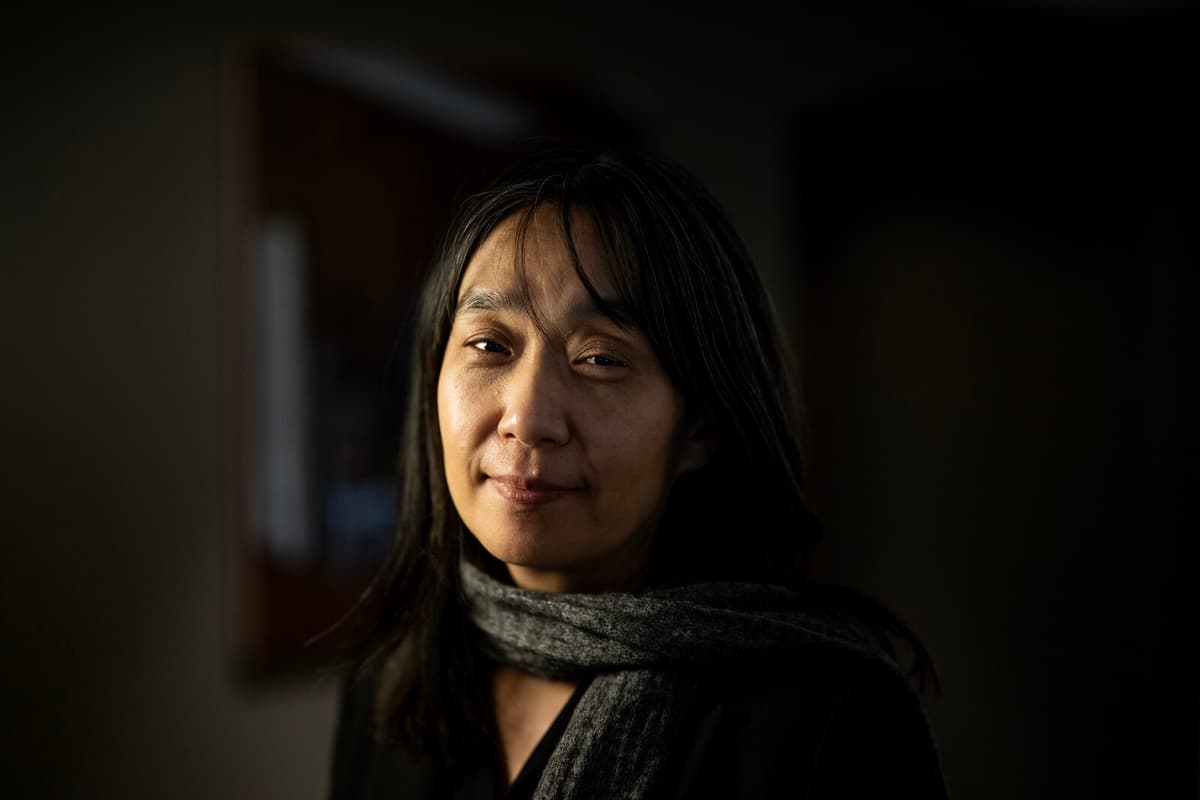This year's Nobel laureate, introspective and low-key, has received the prize for novels about the South Korean regime's violence against its citizens. The Nobel Week itself began after the sitting president's attempt to introduce martial law and war laws in her home country, which made her an involuntary "expert commentator".
It wasn't as if I took on that role myself, but I prepared myself for getting questions, says Han Kang in an interview with an interpreter, while 40 South Korean journalists are waiting for a special press conference.
She sees her own reflections as an expression of what "ordinary people feel right now". But in Sweden, she has had a hard time following the news and doesn't want to speculate about what will happen.
If I had been in Korea, I might have been able to answer, but right now it's hard for me to say anything.
Remaining within her
When she wrote "Human Acts", about the military regime's slaughter of civilians who - in 1980 in her hometown of Kwangju - protested against war laws, Han Kang felt that the past could help the present, that the dead could help those who lived on with severe traumas. After the current president declared war laws, people rushed out onto the streets to stop tanks with their bare hands. That scene will stay with her for a long time.
They knew what had happened in history, they knew it couldn't be repeated and they knew what could happen if the military wasn't stopped, says Han Kang.
A South Korean newspaper published a picture of a young protester, a boy, carrying her book "Human Acts".
I was very moved.
Together
During the Nobel festivities, she heard about how Swedes gather in front of their TVs and eat festive meals at home.
So we can say that we all ate dinner together, she says with a smile.
Even in South Korea, people followed the festivities via YouTube.
But in the city hall of Kwangju, a large hologram of the boy Dong-ho was shown instead, according to The Korea Herald. The boy was one of the victims of the 1980 massacre and the main character in "Human Acts", her most read novel in her home country. Before Han Kang wrote it, she got permission from the boy's older brother, who however set a condition: "I want you to write your book so that no one can ever desecrate my brother's memory again".
I hope that those who have read the book can understand the pain. I hope that I can somehow explain all the misunderstandings and distortions.
Erika Josefsson/TT
Background: Han Kang about...
TTTT
...the South Korean debate about "The Vegetarian" which after the Nobel Prize has been banned or restricted in more school libraries.
Of course, I had mixed feelings. I feel that the situation the novel is in is similar to the one the main character is in, everything that is misunderstood about the book is similar to her life. I think it might be the book's fate.
...the English translation of "The Vegetarian", which has been criticized for being far from the original and which is also the basis for the Swedish translation.
When it was published, I wrote "Human Acts" and didn't have time to read the translation so carefully. When the publisher sent the first draft, I read for three hours without looking up words I didn't understand. I corrected the most obvious mistakes. Later, I read again and corrected 67 errors.
...whether she wishes for a new translation?
I haven't thought about that.
...what she will do with the Nobel Prize money?
I haven't thought about that yet.
...writing after the Nobel Prize?
I was working on a new book in October and had to take a short break. When I get back, I'll continue. I've been writing for so long and see no reason to stop. I plan not to let this (the prize) affect my writing.
Born: 1970.
Grew up: In Kwangju and later in a suburb of Seoul. Her father, Han Seung-won, 85 years old, is also a writer. On the Nobel Day, he was supposed to participate in the celebration at a library named after him, but cancelled due to health reasons, according to The Korea Herald.
Books: "The Vegetarian", her third novel, was published in 2007 in South Korea and in 2017 in Swedish. She has also published poetry, short stories, and essays. In Swedish, there are also "Human Acts", 2016, "The White Book", 2019, and "We Do Not Part" from 2024.






